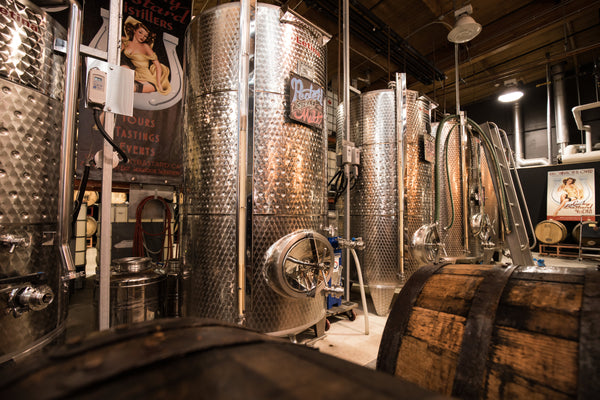Lucky Bastard Distillers: The challenge
Jan 27, 2021
For a relatively new business, Lucky Bastard Distillers has it all.
Within three years after its grand opening, demand for its products forced the team to move into a larger facility; a 15,000 square foot location in Saskatoon.
The move enabled Lucky Bastard to expand its capacity and its product line. Lucky Bastard Distillers now offers 30 products to an ever-growing customer base.
The three original founders now employ a team of 27 manufacturing, sales, and retail staff.
Business is strong.
But not every avenue in the business world is an easy road to navigate. Impediments arise and present challenges, some of which are equally as difficult to understand as they are frustrating to accept.
“Bureaucracy and policies the government writes are our biggest challenges right now,” said Cary Bowman, President of Lucky Bastard.
Currently, Lucky Bastard Distillers pays $8.75 per litre when it produces 325,000 to 350,000 litres. When it exceeds 350,000 litres, the company is considered a national producer.
“We might be considered big as far as small producers in Saskatchewan or across Canada, but compared to national and international companies, we’re not even a dot compared to them. We never could be more than that,” Cary explained. “We can’t scale that big. We do not have the equipment or the resources to get there. We are not even in the same ballpark. So, to be considered a national producer, it makes no sense at all.”

“Our size is an advantage and a disadvantage,” said co-owner Mike Goldney. “We’re small enough that we can experiment with some things, but we are so tiny compared to the big boys in this industry.”
When Lucky Bastard launched, it worked with Saskatchewan Liquor and Gaming Association (SLGA) to write a policy and introduce legislation that would allow the company to operate.
The early years of business and relations with SLGA were encouraging. However, the Lucky Bastard founders have noticed a change in that dynamic.
“SLGA’s interest in craft distillers has diminished,” Mike said. “It seems like they’re putting up a lot of red tape to stop production, to stop innovation. It hasn’t been a good relationship.”
“SLGA is our regulator and our purchaser and they’re also acting like our competition. To not have a good relationship with them is not good for business or our industry.”
Smaller companies with no desire to grow within their respective industries likely are not discouraged by government-issued restrictions. For others, like Lucky Bastard Distillers, such guidelines handcuffs businesses from further development.
The three founders of Lucky Bastard forecast a lack of investment in the craft brewery and craft distillery industry. They agreed they would not invest anything further and anticipate other companies similar in size and distribution would do the same.
Craft brewing and distilling is a relatively new and growing industry in Saskatchewan. Approximately 15 craft distillers operate within the province and employ hundreds in various sectors.
However, a more business-friendly opportunity awaits in Alberta. Lucky Bastard founders fear government-issued restrictions may create a craft brewer and distiller exodus to the west. Currently, they have no plans on leaving. Not yet anyway.
“To grow so quickly and have a successful company, it’s disappointing to just be stopped dead in our tracks,” said co-owner Lacey Crocker. “People will be looking at different provinces, no doubt … it’s a substantially bigger market too.”

Written by: Martin Charlton Communications



